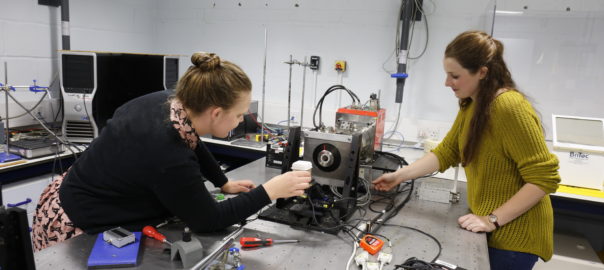Radiation Detection Doctoral Network (RADnet)
PhD scholarships for Industrial collaborative PhD projects
The Radiation Detection Doctoral Network ‘RADnet’ is a novel collaborative doctoral training programme carrying out research and training in radiation detection and applications. The network is run by the Universities of Surrey and Sussex in collaboration with our industrial partners National Physical Laboratory, Kromek, Hilger Crystals, and Rapiscan Systems. The network is supported by the South East Physics Network (SEPnet)
The RADnet doctoral training network brings together PhD researchers, academics and industrial scientists and engineers to focus on collaborative research projects which are directly applicable to industrial challenges. (Please note these PhD projects have now been filled and are no longer available.)
Training and Research Opportunities
RADnet students benefit from close connections between their host University and their training companies. With two industry-leading companies associated with each research project, students have outstanding opportunities for industrial placements, cross-network training events, and access to additional researcher opportunities through the SEPnet Graduate School and the NPL Postgraduate Institute. RADnet PhD students will be uniquely equipped to carry out high quality doctoral research, and to deliver industry-relevant solutions for UK companies.
Studentship Funding
The network established studentships, each based at one of the host Universities, funded for 3.5 years at normal UKRI studentship rates (equal to approximately £14,000 per year). The studentships were open to both UK and EU applicants.
PhD students will be based at their host University, but will normally be expected to spend up to 3 months per year at either of their training companies. The research projects will be directed by a supervisory team consisting of the University supervisor plus your industrial supervisors.
Further Information
For further information about the scheme, as the PhD projects have now been filled, please contact Professor Paul Sellin, lead academic at the University of Surrey: p.sellin@surrey.ac.uk

